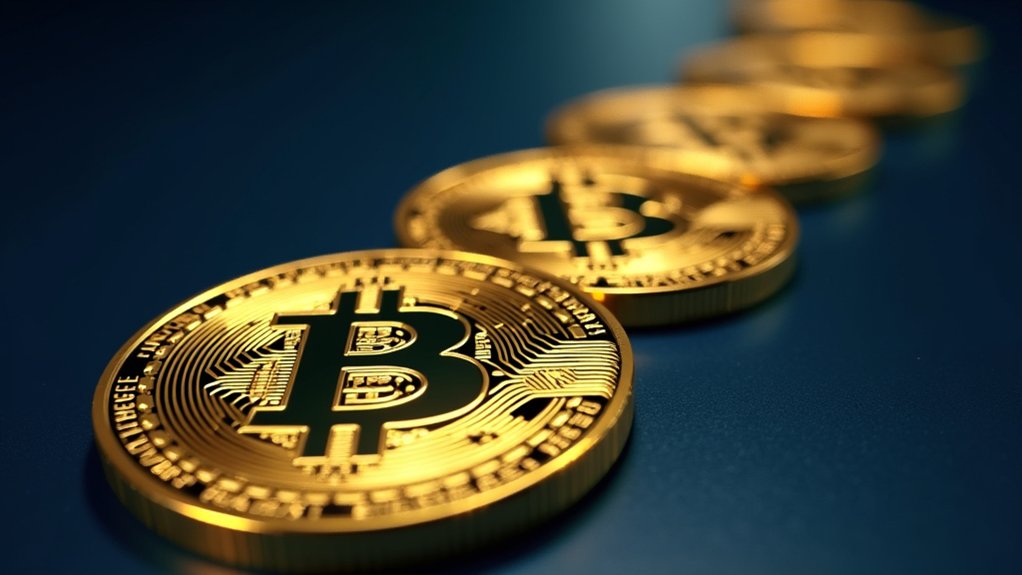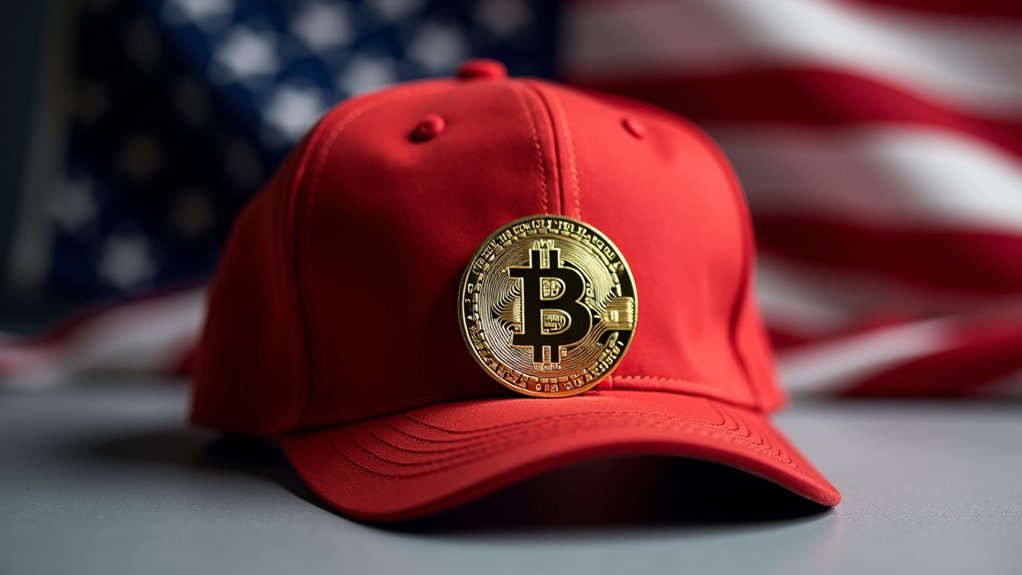Bit money refers to the smallest units of Bitcoin, with one bit equaling 0.00000001 BTC. These tiny digital fragments make cryptocurrency more accessible to everyday users who can't afford whole Bitcoins. Think of bits like digital pennies, secured by fancy math on the blockchain. While perfect for small purchases, bits still face the same wild price swings as Bitcoin. Sure, you could lose your private key and wave goodbye to your bits forever. There's a whole universe of digital money waiting to be explored.

Money gets weird in the digital age. Take Bitcoin, for example – it can be sliced into impossibly tiny pieces called "bits" or "Satoshis," named after its mysterious creator. One bit equals 0.00000001 BTC. That's eight decimal places of division, making traditional penny-pinching look downright primitive.
These microscopic units aren't just mathematical curiosities. They're the building blocks of cryptocurrency's practical use. Think about buying a cup of coffee with Bitcoin – you don't want to deal with saying "zero-point-zero-zero-whatever Bitcoin." Bits make it simpler. They're like the cents to Bitcoin's dollar, except way more granular. Some alternatives like Bitcoin Cash offer faster transactions with much lower fees.
Bits make crypto transactions human-friendly. No one wants to buy coffee with a string of decimals.
The system is actually pretty clever. You've got different sizes of bits – from tiny Satoshis up to hefty Decabits worth 10 BTC. It's like a digital version of coins and bills, except there's nothing to jingle in your pocket. Everything exists on the blockchain, secured by cryptography that would make your high school math teacher's head spin. The decentralized nature of Bitcoin ensures freedom from traditional banking control.
Unlike traditional money, bits don't answer to any government. No central bank can decide to print more on a whim. They're pure market creatures, dancing to the tune of supply and demand. And boy, do they dance – their value can swing wildly enough to give anyone vertigo. These digital assets are considered property for tax purposes by the IRS.
The whole system runs on digital wallets and private keys instead of leather billfolds and bank vaults. Lose your private key, and your bits vanish into the digital void. No "speaking to a manager" will bring them back.
Welcome to the future of money – it's efficient, global, and completely unforgiving.
But here's the kicker: bits are making cryptocurrency more accessible to everyday people. You don't need a fortune to get started. Anyone can own a fraction of a Bitcoin, down to the smallest bit. It's democratizing digital money, one Satoshi at a time.
Sure, there are risks and regulatory grey areas, but that's what happens when you reinvent money for the internet age.
Frequently Asked Questions
How Do I Protect My Bit Money Investments From Cyber Theft?
Protecting crypto investments requires multiple security layers.
Hardware wallets are essential – they store private keys offline, far from hackers' reach.
Two-factor authentication is non-negotiable for all accounts. Strong passwords? Obviously.
But here's the kicker: never use public Wi-Fi for transactions. Period.
Smart investors diversify storage, backup religiously, and keep minimal amounts on exchanges.
Because let's face it, cybercrooks are getting craftier every day.
Can Bit Money Transactions Be Traced by Government Authorities?
Yes, Bitcoin transactions can absolutely be traced. Despite its reputation for privacy, Bitcoin's blockchain is totally public.
Government agencies use sophisticated tracking tools and blockchain intelligence platforms to follow the money trail. Every transaction leaves digital breadcrumbs.
Law enforcement has gotten pretty good at connecting dots, analyzing patterns, and identifying suspicious activity. They work with crypto exchanges, deploy AI tools, and use good old-fashioned detective work to track Bitcoin movements.
What Determines the Daily Fluctuation in Bit Money Value?
Bitcoin's daily value swings are driven by multiple factors working together.
Market supply and demand plays a huge role – when whales make big moves, prices jump or crash.
Investor sentiment and emotions run wild, with FOMO and panic selling causing ripple effects.
Government regulations and news shake things up constantly.
The 24/7 trading and fractured exchange system doesn't help either.
It's basically a perfect storm of volatility.
Are There Any Environmental Concerns Associated With Bit Money Mining?
Yes, major environmental concerns exist.
Bitcoin mining is an energy hog, gobbling up as much electricity annually as the entire country of Poland – a staggering 63 terawatt-hours. Each transaction produces emissions equal to driving 2,600 km in a car. Not exactly eco-friendly.
The process dumps about 86 megatons of carbon into the atmosphere, with the US responsible for 46% of global mining emissions.
Mining operations also drain water resources and require extensive land use.
Which Countries Currently Accept Bit Money as Legal Tender?
No countries specifically accept "bit money" as legal tender.
However, since bits are just subdivisions of Bitcoin, countries that accept Bitcoin as legal tender effectively accept bits too.
Right now, that's just El Salvador and the Central African Republic.
That's it. Two whole countries.
While some regions like Honduras' tourist zones and Switzerland's Lugano are experimenting with Bitcoin payments, they're not making it official legal tender.





